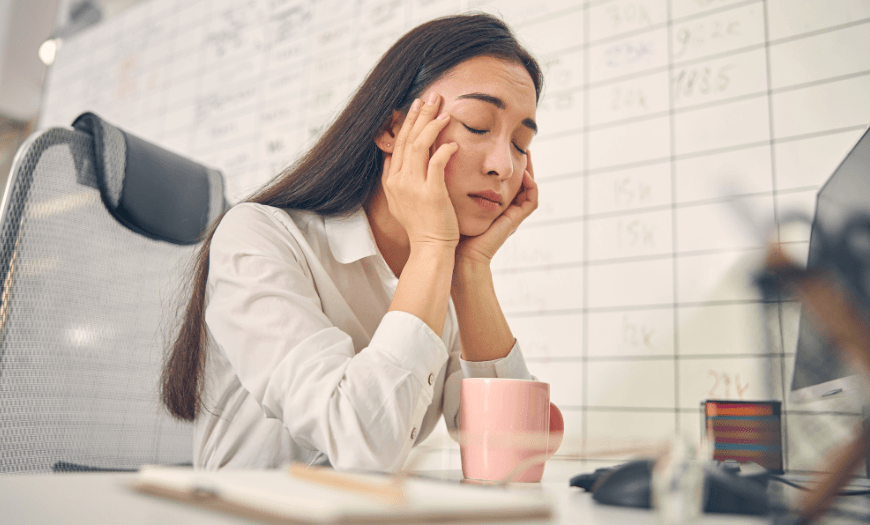Screen apnea - what it is and what to do?
Have you heard of screen apnea? It comes from the English “screen apnea” and is becoming increasingly common. The term “apnea” means voluntary or involuntary interruption of airflow to the lungs. Screen apnea is the interruption of breathing while you are in front of a screen and, according to several studies, you are doing it right now! 80% of people hold their breath or breathe poorly when sitting in front of their monitor. Screen apnea prevents you from breathing properly, which can cause exhaustion, anxiety, and a range of stress-related illnesses and even impair professional performance.
Most people spend an average of ten hours a day sitting, whether in a car, on the sofa, or in front of a screen. And the human body was not designed to be in this inactive position for such long periods of time. Doing so can reduce life expectancy, as it increases the risk of dying from cardiovascular diseases by 85%. Adding to this the consequences of screen apnea, the scenario becomes worrying.
In 2007, Linda Stone, an American writer and consultant, noticed that as soon as she started working on her laptop, she began to breathe shallowly or hold her breath. When she started paying attention over the following days, she realized it was a recurring situation. However, as soon as she got up and moved a little, her breathing became completely different.
During a seven-month observation period, Stone tested about 200 people in her dining room, using a device that measures pulse and heart rate variability. While conducting her research, she spoke with scholars, clinicians, psychologists, and neuroscientists to better understand what happens to our physiology when we hold our breath. At the end of her study, Linda Stone named this phenomenon email apnea or screen apnea - temporary interruption of breathing or shallow breathing when in front of screens.
This study gave rise to several researches on the subject, which confirmed what Stone had concluded: about 80% of people suffer from screen apnea and the remaining 20% who do not show the same symptoms are individuals who, at some point in their lives, learned breathing techniques, such as musicians, dancers, pilots, or high-performance athletes.
There are some tips to reduce the impact of screen apnea and here are some of them:
1- Pay attention to breathing
2- Avoid sitting for many hours in a row
3 - Do physical exercise
4 - Have a chair with a backrest - the more comfortable, the better
5 - Take frequent breaks
6 - Avoid using the mobile phone or other screen during those breaks
The ideal would be to take several breaks during the day and do physical exercise. And to improve your exercise experience, we have an essential accessory in store: headphones and earphones at low prices. Visit our page of Headphones and choose yours now.



Share this article:
Videoconferences are here to stay. What to do?
How to stay focused amid so many distractions?